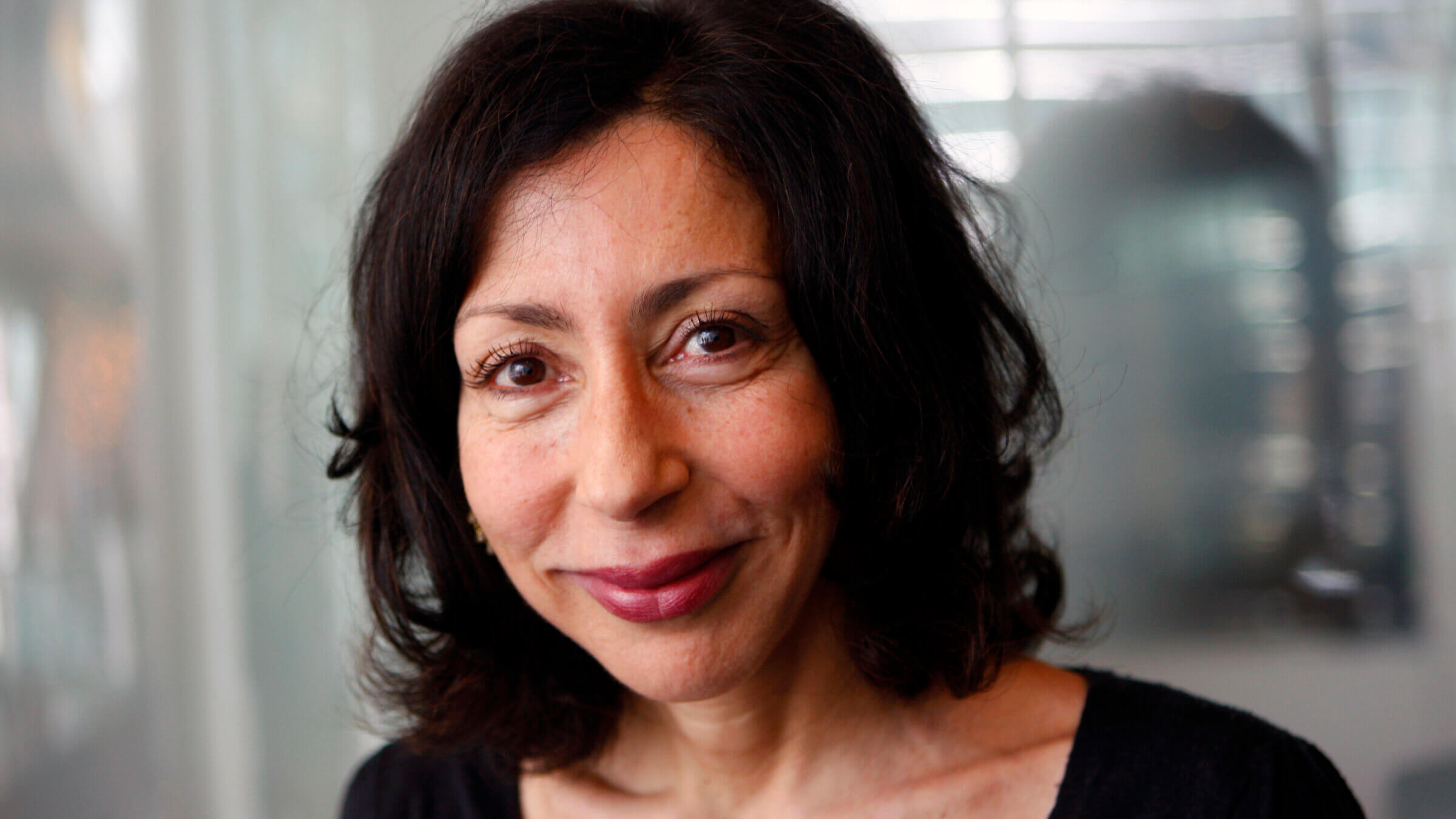In the story of a trip to Auschwitz, family can be a real pain in the tuches
Based on the character Serge from her play ‘Art,’ Yasmina Reza’s novel takes readers into the dysfunctional relationships of the Popper siblings.

French playwright Yasmina Reza’s novel ‘Serge’ makes its English debut this fall. Photo by Andrew Harrer/Bloomberg via Getty Images
Serge
By Yazmina Reza, translated from the French by Jeffrey Zuckerman
Éditions Flammarion, 224 pages, $18
In Yazmina Reza’s novel Serge, the three Popper siblings embark on a family trip to Auschwitz to find traces of their family who perished there. This story is by now a familiar one, given the recent popularity of media about Holocaust tourism. However, unlike A Real Pain, Auschwitz does not bring the characters in Serge closer together — it drives them further apart.
A spin-off of her play Art — which will have a limited revival on Broadway this fall, starring Neil Patrick Harris, James Corden, and Bobby Cannavele — Reza’s Serge is an examination of the titular character through the eyes of his younger brother, Jean Popper. In Art, Serge, trying to prove himself as a purveyor of fine art, spends an extravagant amount of money on a fairly simple painting — a series of white lines atop a background that is also white. This purchase spirals into a conflict with two of his close friends that threatens to tear their relationship apart. First published in French in 2021, Serge takes a deeper look at this character and the many missteps he’s made in a difficult life.
The book’s strengths are its well-written characters and its deft portrayal of difficult family members trying to learn to live with one another. However, Reza’s ability to pull you into the characters’ lives also creates the biggest challenge for reading the book: Serge is utterly unlikeable.
A cheater, a bully, and a chronic whiner, Serge spends most of the book insulting people and wallowing in his own self pity. As he does in Art, he makes rash decisions and assumes he knows best. He also shies away from any obligations that involve caring for others; he avoids visiting a dying cousin until it’s too late. Throughout the story, we watch his personal relationships slowly fall apart due to his obnoxious behavior.
Things get to a boiling point during the trip the brothers take to Auschwitz with their sister Nana and Serge’s daughter Joséphine. Nana lambastes Serge for constantly criticizing others instead of taking steps to improve his own, dismal life. By most accounts, he has failed as an adult; he can’t keep a job, he constantly loses money, his longtime partner has left him for being unfaithful, and he is perpetually unhappy.
And yet Jean seems to have an affinity for Serge, always making up an excuse for his behavior and sometimes parroting it. He blames Serge’s rudeness on the stress of traveling. Instead of validating the feelings of his sister or niece after Serge insults them. Jean tries to dispel the tension with humor. When Serge moves his daughter, Joséphine, to tears by refusing to participate in part of the camp tour, Jean suggests he act more kindly but in the end, takes Serge’s side, rushing Joséphine to finish the tour.
Jean also appears to have adopted Serge’s low views of women. Their girlfriends and female family members are only ever depicted as being hysterical or superficial. Jean’s not a Casanova like Serge — and even seriously dreams about the benefits of settling down — but when Serge jokes about how upset his girlfriend was upon uncovering his affair, Jean joins in, laughing with Serge about his encounters with his mistress, giving no regard to the woman who has been betrayed.
This sympathy may be explained by the siblings’ childhood. Jean witnessed Serge being physically and emotionally abused by their egotistical father, often over incidents as trivial as a chess game. He notes that Serge has inherited their father’s “knack for humiliation” and “bouts of mild insanity.” The only time Jean unabashedly criticizes Serge is when, after they have returned to France, Serge insults a socially awkward boy Jean has taken under his wing.
The novel ends with the siblings reunited at a doctor’s appointment where Serge will undergo a procedure to learn if he has cancer. Even though, in the end, the family comes back together, Serge has seemed to learn nothing —there is no character development, no moment where he apologizes for his behavior and tries to be more cooperative. In fact, none of the characters make any big transformations. The feeling that everyone is treading water makes for a difficult read, but it also feels real. How often do difficult family members wake up one day and surprise you with introspection? How many people walk away from a loved one they know is never going to stop being a complete pain in their tuchus?
Readers may wish for a moment when Serge finally receives his karma, but the irony is he is his own punishment. No matter how much he complicates the lives of others, Serge is hurting himself the most.
















